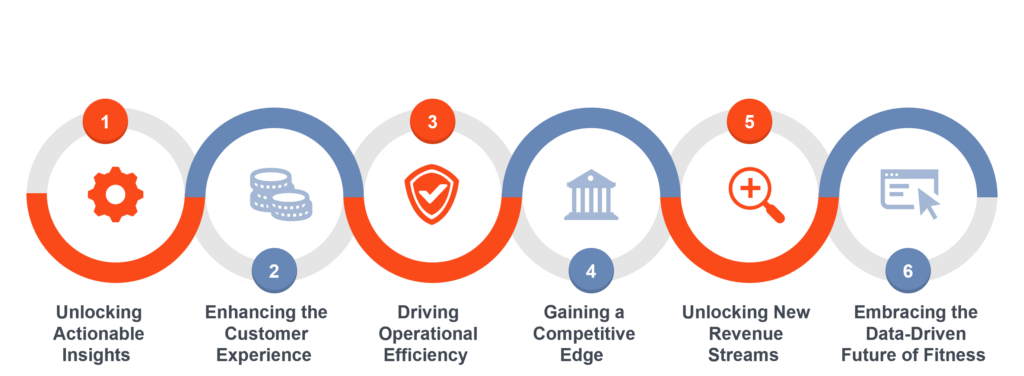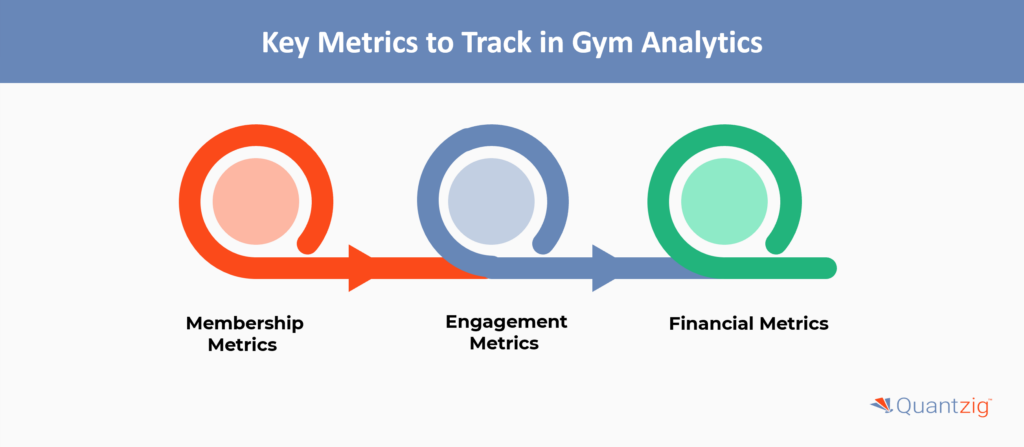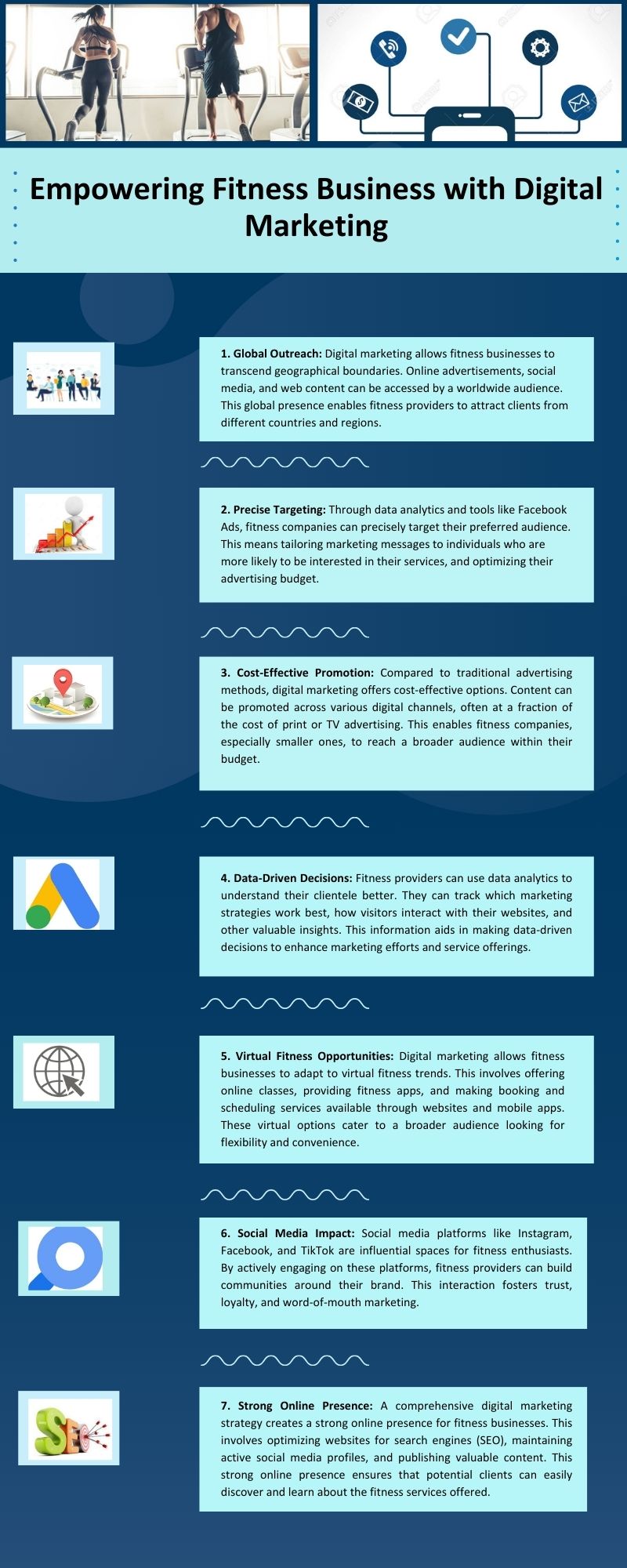Using data analytics to refine fitness marketing strategies involves leveraging detailed insights from member behavior, preferences, and engagement patterns to create personalized, targeted, and efficient marketing campaigns that improve customer retention, optimize marketing spend, and enhance brand development.
Key ways data analytics refines fitness marketing strategies include:
-
Understanding Consumer Behavior and Preferences: Analytics reveals which classes, times, and services are most popular, enabling gyms to tailor marketing messages and offerings to specific audience segments, increasing relevance and engagement.
-
Personalized Marketing Campaigns: By segmenting customers based on demographics, workout habits, and engagement, fitness businesses can send highly targeted promotions (e.g., emails or ads) that resonate with individual preferences, boosting conversion rates and loyalty.
-
Optimizing Marketing Spend: Real-time tracking of marketing campaign performance allows fitness businesses to allocate budgets more efficiently, focusing on channels and offers that deliver the best ROI, reducing wasted spend.
-
Predictive Analytics and AI Integration: Using AI to analyze large datasets helps predict trends, member churn, and preferences, enabling proactive marketing strategies such as timely offers or class recommendations that keep members engaged.
-
Enhancing Customer Retention: Analytics identifies factors influencing satisfaction and dropout, allowing gyms to address pain points through targeted retention campaigns and improved service offerings.
-
Data-Driven Expansion and Innovation: Insights from usage patterns and market trends guide decisions on introducing new classes, equipment, or digital services, aligning marketing with evolving customer needs and preferences.
-
Improving Brand Development: Fitness data analytics supports building a stronger brand by enabling personalized experiences, anticipating customer needs, and fostering authentic connections through data-informed communication.
In practice, gyms collect data from management software, wearables, social media, and feedback forms, then use AI and machine learning to process this data into actionable insights that inform marketing strategies.
Overall, integrating data analytics into fitness marketing transforms generic campaigns into personalized, efficient, and predictive strategies that drive growth, member engagement, and competitive advantage in the fitness industry.





